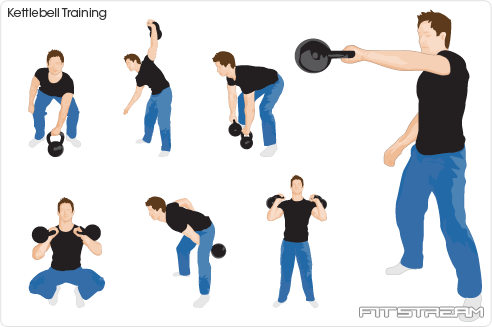Kettlebell Nutrition: Supporting Your Training with Smart Choices

Nutrition plays a crucial role in maximizing the benefits of any workout routine, and kettlebell training is no exception. Whether you are new to kettlebells or an experienced practitioner, incorporating smart food choices into your diet can enhance your performance, aid in recovery, and support your overall well-being. This article aims to guide you through the essentials of kettlebell nutrition and how to make intelligent dietary decisions to complement your training.
The Importance of Proper Nutrition for Kettlebell Training
When engaging in intense kettlebell exercises, your body requires sufficient fuel to power through the workouts and recover effectively. A well-balanced diet ensures you have enough energy, essential nutrients, and proper hydration to perform at your best.
Macronutrients for Kettlebell Enthusiasts
Proteins, carbohydrates, and fats are the three macronutrients that form the foundation of a healthy and balanced diet. Each macronutrient serves a specific purpose for kettlebell enthusiasts:
1. Proteins:
Proteins are vital for repairing and building muscles. Include lean sources of protein in your meals such as chicken, turkey, fish, tofu, and legumes. Aim for a daily intake of around 1-1.5 grams of protein per kilogram of body weight to support muscle recovery and growth.
2. Carbohydrates:
Carbohydrates are the primary source of energy for your workouts. Opt for complex carbohydrates like whole grains, fruits, vegetables, and legumes. They provide sustained energy, enhance endurance, and prevent fatigue during your kettlebell sessions.
3. Fats:
While fats often receive a bad reputation, they are crucial for hormone production, joint health, and brain function. Prioritize healthier fats found in avocados, nuts, seeds, olive oil, and fatty fish like salmon. Avoid saturated and trans fats as much as possible.
Hydration is Key
Staying hydrated is essential for optimal performance during kettlebell training. Dehydration can lead to a decrease in strength, endurance, and focus. Remember to drink water consistently throughout the day and consume more fluids during and after your workouts to replenish what is lost through sweat.
The Power of Nutrient Timing
When to eat is just as important as what you eat, especially when it comes to fueling your kettlebell sessions. Consider the following tips:
1. Pre-workout:
Consume a balanced meal containing carbohydrates and proteins 1-2 hours before your training. This allows enough time for digestion and provides sustained energy throughout your workout.
2. During the workout:
Stay hydrated by sipping on water or a sports drink during your kettlebell session. Listen to your body’s cues and take short breaks to refuel as needed.
3. Post-workout:
Within 30-60 minutes after your workout, have a recovery meal or snack rich in both protein and carbohydrates. This aids in muscle repair, replenishes glycogen stores, and supports your body’s recovery process.
Supplements to Consider
While a well-rounded diet should provide most of the nutrients you need, certain supplements can enhance your kettlebell training. Consult with a healthcare professional or a registered dietitian before incorporating any supplements into your diet. Common supplements include:
Protein powder
Creatine
Omega-3 fatty acids
Multi-vitamin and mineral complex
Listen to Your Body
Every individual is unique, so it’s essential to listen to your body’s needs. Pay attention to how different foods make you feel and perform during your kettlebell workouts. Adjust your diet accordingly and make personalized choices that support your goals and overall health.
In Conclusion
Optimizing kettlebell training involves more than just physical exercise. Proper nutrition is a key component in supporting your progress and ensuring long-term success. By following a well-balanced diet, maintaining hydration, considering nutrient timing, and supplementing wisely, you can maximize your kettlebell training benefits and achieve your fitness goals.